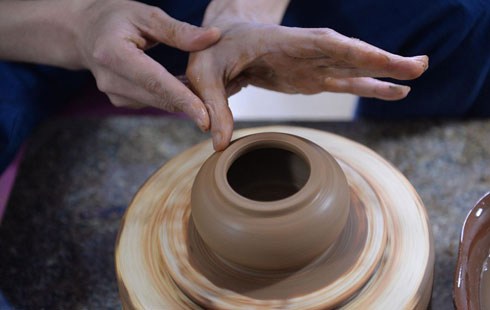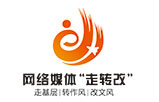Reds' star rises in the East
By Li Xiang (China Daily) Updated: 2012-08-04 04:20Chinese investors have been picking off Bordeaux's best, to satisfy a growing thirst back home
As the global economic downturn hits Western demand for French wines, Chinese buyers are being viewed as the saviors of the industry.
The Bordeaux wine region, most recognized by Chinese consumers, has seen a three-digit growth in its exports to China since the country overtook the UK and Germany to become its largest client in 2010.
According to figures released by the Bordeaux Wine Council, or CIVB, China imported 58 million bottles of wine worth 334 million euros ($410 million) from Bordeaux in 2011 — an increase of 103 percent on the previous year. The sales value generated from the Chinese market, including Hong Kong, now accounts for 35 percent of Bordeaux's total wine exports.
The lucrative region has seen Chinese State-owned companies, such as COFCO Group, as well as private businessmen, flocking to the region to acquire vineyards and chateaux in the hope of gaining control of supplies and eliminating intermediaries in the distribution chain to expand profit margins.
It is estimated that more than 25 chateaux in Bordeaux have been bought by Chinese companies or individuals in the past year, and 30 more are expected to close deals by the end of this year.
And despite the recent price plunge of top-growth Bordeaux wines, and concerns over a bursting bubble inflated by the surge of China's interest in luxury goods and Western tastes, wine experts suggest there is unlikely to be any letup soon in the growing Chinese thirst for French fine wines.
Lushang Group, a State-owned conglomerate in Shandong province, has already shipped 150,000 bottles of wine worth 400,000 euros back to China since it purchased the little-known Chateau de Gugat from a Swiss owner a year ago in the Blasimon region near Bordeaux.
"The production capacity of the chateau is about 220,000 to 250,000 bottles per year, which is far from meeting the demand at home.
"With our strong distribution and retail network, it can be sold instantly," said Tan Xingang, general manager of the chateau.
Setting up a wine trading entity in Bordeaux, added Tan, is the Shandong company's next step, which will enable it to not only sell its own wines but also gain a much wider access to wines from neighboring estates and other wine brokers.
The company isn't the only one to be eyeing the potential opportunity in the traditional "negociant" trading system of the Bordeaux wine market, which sees a wine merchant assemble the produce of smaller growers and winemakers and sell the result under its own name.
A recent move by Chinese group Bright Food, acquiring 70 percent of shares of Diva Bordeaux, a leading wine trading company, has heralded a trend of Chinese companies expanding from vineyard and chateau purchases to investing in the wine trading business.
Bright Food's move caught some in the industry by surprise, as it was the first time that a Chinese company had invested in a Bordeaux negociant.
French newspaper Le Figaro described the deal as a step by Chinese investors to "finally plant the flag in the heart of French gastronomy".
Xu Qinghua, head of China business services at accounting firm Ernst & Young in France, said of the move: "In my view, the deal with Diva is a genius move by Bright Food, as the wine trading business is usually the most value-adding in terms of brand creation and brand management, as well as the most profitable in the wine industry supply chain.
"And wine traders are the ones who have the most up-to-date market intelligence."
Xu believes it will give the company access to a much wider range of wines, get a sniff of the market and identify first hand those most in demand by Chinese consumers.
It may also help pave the way for future acquisitions by Bright Food and give it the advantage of being the first to shape the taste of the relatively immature Chinese wine market.
For Diva Bordeaux, the investment reinforces the company's capital position and brings it closer to China's huge customer base, which already accounts for 45 percent of its total sales, said its managing director, Jean-Pierre Rousseau.
The company posted a total turnover of 33 million euros last year, and Rousseau thinks with the help of Bright Food, it can easily double that in three to four years.
Ripening enthusiasm by China's growing wealthy and middle classes for luxury goods and a Western lifestyle has meant a massive rise in wine consumption in the country.
Eager to go with the flow, to date, most Chinese investors have been targeting mid-range chateaux in Bordeaux at a cost under 10 million euros.
With a ready-made distribution and retail network back home, new Chinese chateaux owners usually ship their entire production back to China.
The main distribution channels for Bordeaux wines in China are private clubs and luxury five-star hotels where a 4-euro bottle of wine can be easily sold for 1,000 yuan ($157).
"The wide profit margin is definitely the major motivation behind the Chinese acquisitions, said Lin Lan, manager at real estate company EC Immobilier in France.
"Some Chinese buyers would look for chateaux that have a similar-sounding name to famous first-growth chateaux such as Lafite Rothschild, hoping to cash in on the 'Lafite effect' in the home market."
While wine producers and traders in Bordeaux are well aware of the risks of putting all their eggs in one basket, the temptation of the Chinese market is just too hard to resist.
Many top-tier chateaux in Bordeaux have already stepped up their promotional efforts in China, hoping to capitalize on China's surging interest in wine.
Hiring Chinese-speaking assistants, opening Chinese social media websites, designing labels that appeal to Chinese consumers, and organizing tasting events in China are common ways for French chateaux to attract Chinese buyers.
"You have to be there to build the brand. You have to show your face and your wines for a market that is very eager to learn and to taste different wines," says Anne Cuvelier, public relations officer for Chateau Leoville Poyferre, a second-growth chateau in the Medoc region.
The chateau is gathering ideas for a special promotion of a wine that it has adapted especially for the Chinese market.
"We want to make sure they understand the wine and the work behind it. It would be a pity if a bottle is opened just because it is expensive," she says.
So far, Chinese consumers have been buying either at the very top or the very bottom end of the Bordeaux range, as the main purpose of wine consumption is still predominantly based around entertaining and gift giving.
But the trend is gradually changing, as Chinese buyers become more knowledgeable and sophisticated about wines, reflected in the rapidly growing demand for mid-range wines.
"We don't expect three-digit growth to happen forever," said Georges Haushalter, president of CIVB.
"What is very interesting to notice in China now is that we actually have a growth rate higher in volume than in value, which shows that we are going from a position where people are looking at the most expensive wines as social trophies, to a position where more and more people actually drink wines themselves."
CIVB's president for Asia, Thomas Jullien, added: "We are seeing a turning point in the Chinese market where growth is likely to be slower.
"But we are comfortable with it because it means that people are starting to care about the long-term prospect of the market."
Diva Bordeaux's Rousseau said that the company has been selling mostly 2-euro wines or bottles costing more than 50 euros over the past two years.
But now wines priced between 4 to 10 euros from the Saint-Emilion and Graves areas are becoming increasingly popular among Chinese buyers.
"These wines are consumed by the middle class, who hold huge potential in China. And demand in the second- and third-tier cities has just begun to grow," he said.
"That's why we think, for a great part, the future of Bordeaux's wine market is in China."
Contact the writer at lixiang@chinadaily.com.cn
- Canton Fair data fuels export optimism
- VW China's environmental program big hit in Urumqi
- Beijing puts restriction on property buyers in Tongzhou district
- Central bank drains 220b yuan from market
- Teapot craftsman makes innovation, passes down techniques
- Positive attitude goes long way
- China's CRRC Industrial Investment opens European office in Budapest
- Half of new state vehicles to be powered by new energy

















